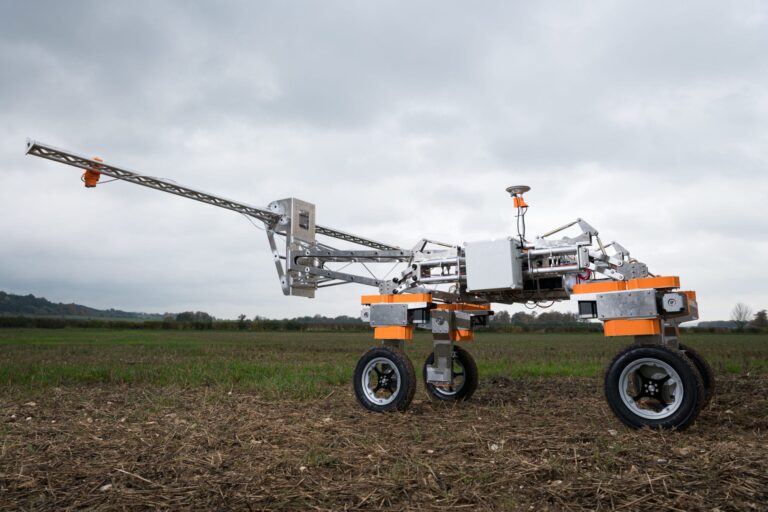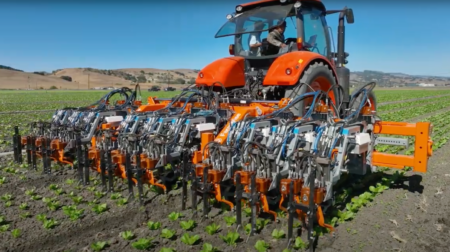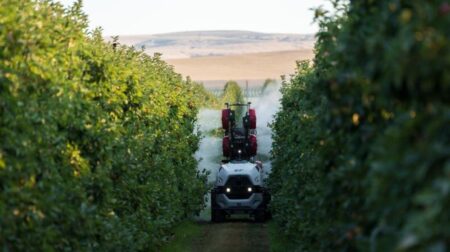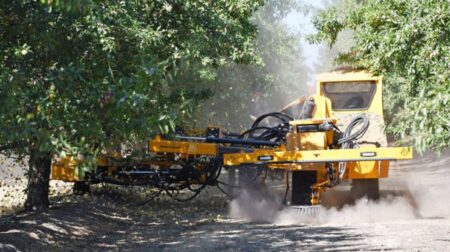Small Robot Company (SRC), a British agritech start-up for sustainable farming, has announced successful funding for its latest Crowdcube equity crowdfunding campaign.
The company reached its initial funding target of £700,000 within two days of its launch, hitting £560,000 within minutes.
The funding secured will finance SRC’s non-chemical weed zapping robot Dick to field trials, and the manufacture of a fleet of Tom monitoring robots for its commercial weed mapping service.
SRC is now seeking to raise additional funds to further accelerate its development.
The successful campaign received the biggest support from the farming, technology and eco communities.
Sam Watson-Jones, co-founder, SRC, said: “This landslide success demonstrates the huge appetite for agritech – and the demand from farmers. This completely ignited our fundraising.
“It’s inspiring to see how much support there is for innovation in agriculture. It feels like the time is right for these technologies to start making a difference.”
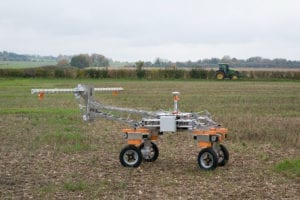
Using robotics and AI, SRC claims to have developed a model for “ecologically harmonious, efficient and profitable farming”.
Its farmbots Tom, Dick and Harry plant, monitor and treat arable crops autonomously, with minimal waste.
Since its last raise, SRC has moved from proof of concept to a commercially-ready prototype.
According to the company, this next raise will help it to begin manufacturing its robots, as well as delivering its weed zapping technology.
Ben Scott-Robinson, co-founder, SRC, said: “Today, we’re delivering an AI-generated field map that has the potential to show the exact location of every plant and all of the weeds on UK farms, and we’re the first to market with a product of this sort.
“This year we’ll kill these weeds autonomously without using chemicals.
“With pressure increasing from regulators and herbicide resistant weeds, this will be game-changing.”
SRC has secured more than £2.5m in funding to date, including the aforementioned £1.2m from its previous Crowdcube raise, and more than £1m in government Innovate UK grants.
This includes an £800,000 grant for its Wilma artificial intelligence weed recognition and Tom weed mapping technology.
SRC is currently in field trials on 20 farms across the UK, including Waitrose’s Leckford Estate farm and National Trust’s Wimpole Estate.
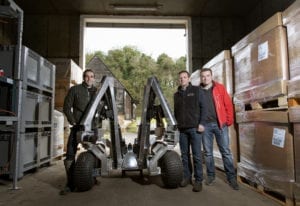
Both sites are trialling SRC’s first commercial weed mapping service, which uses the company’s next-generation Tom monitoring robot to first locate the weeds.
According to SRC, this is the world’s first service for individual plant mapping at broadacre scale.
Working with British start-up RootWave, SRC has completed development of its Dick non-chemical weeding robot prototype to in-lab proof of concept stage, Technology Readiness Level (TRL) 4.0.
An initial prototype will go into field trials in 2020, with the commercial weed-zapping service anticipated to be available from autumn 2021.
SRC has claimed that this will enable automated, precision, per-plant weeding both at scale and autonomously, for the first time providing a post-glyphosate future for arable farmers.
With up to 95% of chemicals reportedly wasted in the current farming system, this new non-chemical weeding technology could be significantly more nature-friendly and better for biodiversity, according to SRC.
SRC’s Wilma is also now in use for commercial weed identification and decision support.
Wilma can detect both BLW and emerging wheat, following extensive training using tens of thousands of images from the last year’s data collection.
Working with partner Cosmonio, work is now underway for identification of grass type weeds such as blackgrass, brome and ryegrass, the mapping of which is scheduled to follow next autumn.
“We’re on the cusp of a fourth agricultural revolution, taking farming into the digital age: and with British ideas and British technology at the helm,” added Scott-Robinson.
“Our Tom, Dick and Harry robots will completely transform what’s possible on the farm.
“It will radically reduce chemical usage in arable farming, while improving soils, profits and yields.
“It’s the ultimate sustainable farming model.”

